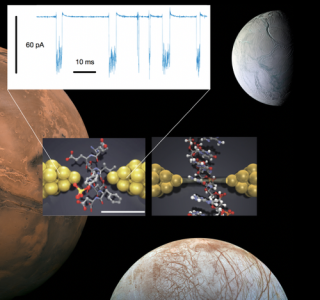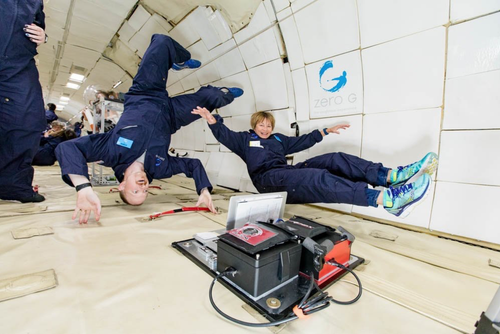ELIE: Electronic Life-detection Instrument for Enceladus/Europa


For more information see an overview with some updates about parabolic flights conducted as part of a collaboration with the MIT Media Lab Space Exploration Initiative.
Publications:
Carr CE, Duzdevich D, Szostak JW, Lee S, Taniguchi M, Ohshiro T, Komoto Y, Ruvkun G, Soderblom JM, and Zuber MT (2020), Electronic Life-detection Instrument for Enceladus/Europa (ELIE), Abstract 678692 (P044-0002), AGU Fall Meeting, 1-17 Dec. 2020. Earth and Space Science Open Archive (ESSOAr) doi:10.1002/essoar.10506997.1. Earlier version submitted as: Carr CE, Duzdevich D, Szostak JW, Lee S, Taniguchi M, Ohshiro T, Komoto Y, Ruvkun G, Soderblom JM, and Zuber MT. Electronic Life-detection Instrument for Enceladus/Europa (ELIE). 2020 In Situ Science and Instrumentation Workshop for the Exploration of Europa and Ocean Worlds, JPL, Pasadena, CA, April 28-30, 2020 (abstract; held online as 2021 Virtual In Situ Science and Instrumentation Workshop for the Exploration of Europa and Ocean Worlds, May 20, 2021). Video: https://youtu.be/lMfXHJkVyXk?t=3442
Lee, S. Single molecule detection and classification using nanogaps. Massachusetts Institute of Technology, Department of Electrical Engineering and Computer Science [SM Thesis], 2021. https://dspace.mit.edu/handle/1721.1/130699
